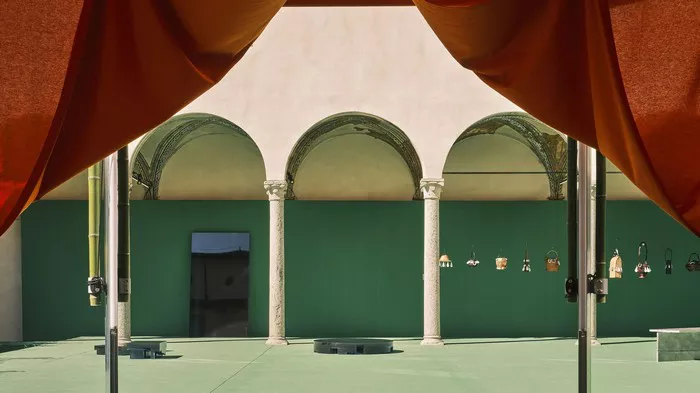Milan Design Week 2025 has come to a successful close, with over a thousand exhibitions scattered across the city. Design brands, fashion labels, and independent designer studios were all actively involved, raising an important question: Is furniture design becoming increasingly significant in today’s fashion world?
Notably, the presence of fashion brands at this year’s design week was significantly stronger compared to previous editions. Many brands not only showcased furniture but also deliberately created immersive experiences. Collaborations with designers, brand retrospectives, screenings, and panel discussions were common, signaling that fashion brands are shifting their focus from just design craftsmanship to the broader narrative of their brand. This strategy is becoming key to strengthening their cultural influence.
While the discussion of materials, shapes, function, craftsmanship, and innovation remained central to Milan Design Week, some brands used the platform to tell a story and shape their brand identity. The design became the backdrop for storytelling, with varying emphasis on design versus brand image. Beyond fashion apparel, younger generations are placing increasing importance on personal taste, with interior design focused on the promises of quality and timelessness. The trend cycle in furniture is longer-lasting, and fashion brands are now using it as a tool to establish a more thoughtful and serene luxury image.
Milan Design Week has always been more than just about design; it’s also about promoting brand tone and identity. There’s no doubt that modern brands are focused on creating experiences and gaining exposure through social media. Those that can balance both elements have the potential to become key cultural events, avoiding the risk of becoming overshadowed by gimmicks and marketing tactics that could dilute the core design message, or overshadow the visibility of smaller studios.
Throughout the event, many notable fashion brands contributed to advancing and preserving design craftsmanship. SAINT LAURENT revived Charlotte Perriand’s classics, JIL SANDER presented a reinterpretation of the S 64 chair, APOC ABLE ISSEY MIYAKE showcased lighting designs, LOEWE displayed its teapot craftsmanship, and LOUIS VUITTON returned to the Object Nomades collection. These are just a few examples of how fashion houses are integrating design into their storytelling.
As Milan Design Week continues to evolve, it’s clear that fashion brands are increasingly merging design with a broader cultural narrative, signaling a new era in how brands approach the intersection of style, craftsmanship, and identity.
Related Topics
- Best Menswear Stores in San Francisco for Every Style
- Kartik Research Makes Its Mark in the Menswear World
- Copenhagen Fashion Week Partners with V&A for Fashion in Motion Showcase

